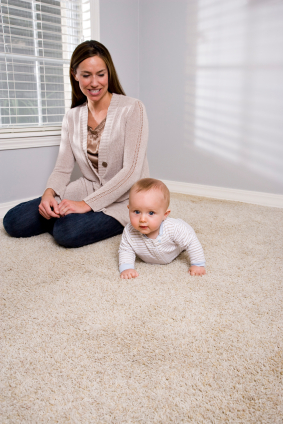What if my pelvic floor feels heavy?

It is not uncommon for postnatal mums to feel a tiredness or heaviness in their pelvic floor, especially at the end of the day. If you are tired, then your pelvic floor can feel tired too, and like you it needs a rest. This can make it a difficult time for new Mums, as in the late afternoon or evening, dinner preparation and settling baby still needs to be done.
If you do feel heaviness ‘down below’, then this can be considered as a ‘warning sign’ that needs attention. Your pelvic floor may need a rest at the time however this is not always possible. Sometimes adding in more frequent rests during the day, even if they are short, can help.
After the birth, the pelvic floor muscles are recovering, often for months, due to being stretched during the delivery (birth). The effect of pregnancy hormones which relax the connective tissue in the body, can still have an effect in the early postnatal months. It is thought that these softening effects can take at least three to four months to go away.
What can you do?
Advice we often give to new Mums feeling pelvic floor heaviness include:
-
Lying down for rests during the day
-
If comfortable, get into the hands and knees position as this can give your pelvic floor muscles a rest, as can propping down on your elbows.
.jpg.aspx)
-
Think about your food preparation and planning
-
Sit down to do this if you can instead of standing.
-
Prepare dinner earlier in the day if possible when you are less tired.
-
On weekends or days when your partner is home, get help to prepare food for the coming days or week.
-
Cook bulk meals and freeze when you can so that you can get these out when you need it, as there are days when you may feel more tired.
-
Pelvic floor exercises
-
See a Physiotherapist working in pregnancy, postnatal and pelvic health for assessment and further instruction and advice on your pelvic floor.

-
Wear support or compression shorts or leggings. There are a range available designed specifically for postnatal Mums to provide support to your abdominal wall, back and pelvic floor during this time.
-
Avoid breath holding when possible (focus on your breath out when lifting, or when pulling or pushing the pram).
One postnatal Mum noticed that she was holding her breath when pushing the pram up curbs and felt the effect this was having on her recovering pelvic floor. When she focused on breathing out while pushing her pram, she noticed an improvement, feeling less symptoms and less ‘push down’ on her pelvic floor.
-
Start with postnatal exercises when returning to fitness. There are some exercises that could cause pressure down on your pelvic floor so check your program with your Physiotherapist, Health or Fitness professional.
Postnatal Physiotherapy in Mandurah

Postnatal Physiotherapy treatment is available in Mandurah at Mandurah Pelvic Health, located at 11 Peelwood Parade in Halls Head.
www.mandurahpelvichealth.com.au
Phone reception on (08) 95559854 for appointments.
Copyright 2011-2025 . Demac Resources Pty Ltd. www.thepregnancycentre.com.au